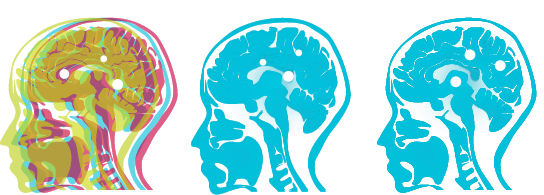In patients with HER2+ metastatic breast cancer
BRAIN METASTASES, DESPITE THEIR FREQUENT OCCURRENCE, CAN GO UNDETECTED1-2
Brain metastases can occur without identifying symptoms1,2

UP TO
1 in 3 patients
with brain metastases may be neurologically asymptomatic1,2
- Current ASCO guidelines do not recommend proactive imaging in asymptomatic patients3
- NCCN Clinical Practice Guidelines in Oncology (NCCN Guidelines®) recommend imaging only as clinically indicated and not for all patients4
Some brain metastases symptoms are similar to treatment-related side effects or are also symptoms of other conditions 5-12

headache

confusion

weakness

pain

altered mental status
Altered mental status includes manifestations of brain dysfunction such as impaired cognition,
inattention, disorientation, altered behavior, and drowsiness13
Referenced with permission from the NCCN Clinical Practice Guidelines in Oncology (NCCN Guidelines®) for Breast Cancer (Version 5.2021). National Comprehensive Cancer Network, Inc. 2021. All rights reserved. Accessed September 24, 2021. To view the most recent and complete version of the guideline, go online to NCCN.org. NCCN makes no warranties of any kind whatsoever regarding their content, use, or application, and disclaims any responsibility for the application or use in any way.
ASCO = American Society of Clinical Oncology; HER = human epidermal growth factor receptor; MBC = metastatic breast cancer; NCCN = National Comprehensive Cancer Network.
References: 1. Brufsky AM, Mayer M, Rugo HS, et al. Central nervous system metastases in patients with HER2-positive metastatic breast cancer: incidence, treatment, and survival in patients from registHER. Clin Cancer Res. 2011;17(14):4834-4843. 2. Niwińska A, Tacikowska M, Murawska M. The effect of early detection of occult brain metastases in HER2-positive breast cancer patients on survival and cause of death. Int J Radiat Oncol Biol Phys. 2010;77(4):1134-1139. 3. Ramakrishna N, Temin S, Chandarlapaty S, et al. Recommendations on disease management for patients with advanced human epidermal growth factor receptor 2-positive breast cancer and brain metastases: ASCO clinical practice guideline update. J Clin Oncol. 2018;36(27):2804-2807. 4. Referenced with permission from the NCCN Clinical Practice Guidelines in Oncology (NCCN Guidelines®) for Breast Cancer V.8.2021. © National Comprehensive Cancer Network, Inc. 2021. All rights reserved. Accessed September 24, 2021. To view the most recent and complete version of the guideline, go online to NCCN.org. NCCN makes no warranties of any kind whatsoever regarding their content, use or application and disclaims any responsibility for their application or use in any way. 5. Irvin W Jr, Muss HB, Mayer DK. Symptom management in metastatic breast cancer. Oncologist. 2011;16(9):1203-1214. 6. Oltean D, Dicu T, Eniu D. Brain metastases secondary to breast cancer: symptoms, prognosis and evolution. Tumori. 2009;95(6):697-701. 7. Cacho-Díaz B, Spínola-Maroño H, Arrieta VA, et al. Diagnosis of brain metastases in breast cancer patients resulting from neurological symptoms. Clin Neurol Neurosurg. 2018;173:61-64. 8. von Minckwitz G, Huang C-S, Mano MS, et al. Trastuzumab emtansine for residual invasive HER2-positive breast cancer. N Engl J Med. 2019;380(7):617-628. 9. Swain SM, Baselga J, Kim S-B, et al. Pertuzumab, trastuzumab, and docetaxel in HER2-positive metastatic breast cancer. N Engl J Med. 2015;372(8):724-734. 10. Docetaxel [Prescribing Information]. Bridgewater, NJ: Sanofi-Aventis U.S. LLC. May 2010. 11. Paclitaxel [Prescribing Information]. Princeton, NJ: Bristol-Myers Squibb Company. April 2011. 12. Capecitabine [Prescribing Information]. South San Francisco, CA: Genentech USA, Inc. May 2021. 13. American College of Emergency Physicians. Clinical policy for the initial approach to patients presenting with altered mental status. Ann Emerg Med. 1999;33(2):251-281.



 are US registered trademarks of Seagen Inc.
are US registered trademarks of Seagen Inc.